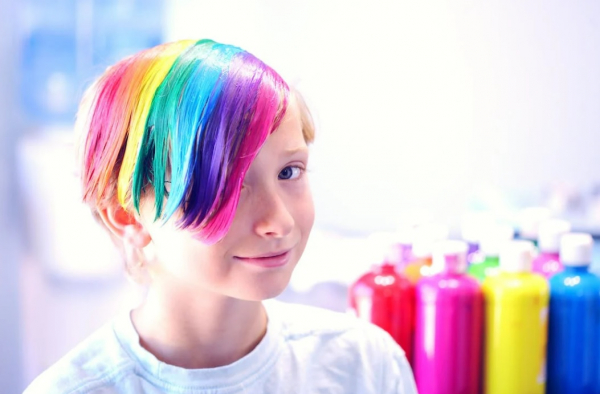
For some Christian parents, having a child come out as gay or lesbian could be a traumatic experience. There are Christian parents who are not as welcoming to the idea of an LGBTQ+ kid due to their religious beliefs, especially if they belong to a conservative denomination.
However, parents must understand that they should be the first persons to embrace their kid's gender identity since many LGBTQ+ individuals suffer from bullying outside the home.
Here are some tips for Christian parents with LGBTQ+ kids:
Maintain constant communication with your kid's school. Unless your kid is home-schooled, you must ensure that you're constantly communicating with your kid's school. This includes their teachers, school staff, and administrators. Kids spend a great deal of time at school, so it pays to have a good relationship with everyone there. You'll most likely be aware if your kid experiences bullying or problems in class if you're in good standing with the school functionaries.
Show your kids your love and acceptance. Your kids may already have battles outside of your home, so the last thing you want to do is to be another battle they have to win.
According to Johns Hopkins' Dr. Errol Fields, an assistant Pediatrics professor:
"Time and time again, we hear the same thing from patients: 'Once my parents are behind me, I can handle anything else the world throws at me. You're their anchor, and your acceptance is key. In fact, research shows that LGBTQ adolescents who are supported by their families grow up to be happier and healthier adults."
Meanwhile, another Johns Hopkins resident Pediatrics professor, Dr. Renata Sanders, said parents don't have to become experts in LGBTQ+ matters. She explained that parents of LGBTQ+ kids only have to do some simple things to connect with their kids.
"There's no right or wrong way to express love. Just be present and be open," Sanders said. Thus, standing behind your kids as they face challenges connected to their gender choice is one way of making their lives easier and better in a world that is becoming increasingly hostile to people who identify as LGBTQ+.
Don't shame your kid using religion as a basis. Some Christian parents whose kids have come forward and admitted to being gay mistakenly use religion as a basis to shame their kids into returning to their "normal" selves. While parents may be well-meaning for doing it, they could actually inflict irreparable damage that would torment their kids for a lifetime. So, instead of shaming them on religious grounds, teach them instead of Christian ways that would allow them to continue being what they are while still staying true to Christian values.
Establish and keep an open line of dialogue between you and your kid. It's vital for you and your LGBTQ+ kid to feel comfortable about discussing matters concerning their sexuality. It would be understandably hard to do at first, but you can do it through practice. When you have established with your kid that you are always willing to listen and talk with them, they'll be more open about telling you their struggles and concerns. This could not only unburden them but also ensure they would think of turning to you first if they have problems instead of seeking company from unsavory friends or acquaintances.
Learn everything you can about how LGBTQ kids think. Dr. Sanders revealed that many parents of LGBTQ kids have a long way to go before they can understand their kids.
"When we speak with parents, we hear a lot of misconceptions about gender and sexual orientation," she explained.
There are some things parents should not say to their LGBTQ+ kids lest they want to hurt or alienate them. These include telling them "it's just a phase" and "it's incurable," as these phrases tend to cause hurt among kids who have come out to their parents. If their parents would not accept them for who and what they are, they would likely seek acceptance and validation elsewhere.
Watch out for bullying signs. Many LGBTQ+ kids who are being bullied outside their homes for their gender do not instantly inform their parents about their ordeal, especially if they haven't come out yet. As such, you should be extra watchful for signs of bullying so you can act quickly and appropriately. Some of these tell-tale signs include a sudden decline in academic performance or interest in sports activities, a change in their behavior (sudden withdrawal or rebellion), behavioral problems at school, and a penchant for risky activities (drug use or sex). Having the ability to spot these signs and acting quickly can be a lifesaver, especially if your kid is at-risk of bullies or themselves (like the possibility of suicide).
Related Article: 10 Ways How LGBTQ+ Christians and Their Families Could Protect Themselves From Harm

















